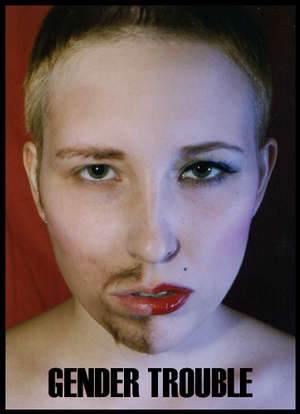Pope Francis, the 266th pope of the Roman Catholic Church, has emerged as a significant figure in contemporary discussions about faith, morality, and social issues. His leadership has been marked by a commitment to reform within the Church and a focus on inclusivity, compassion, and dialogue with the modern world. However, his views on certain topics, such as gender theory, have sparked considerable debate both inside and outside the Catholic community.
One of the most contentious areas where Pope Francis' teachings intersect with modern discourse is his stance on gender theory. As society increasingly embraces diverse understandings of gender identity, the Pope's perspective offers a distinct theological critique rooted in traditional Catholic doctrine. By examining his insights and influence, we can better appreciate the complexities of this evolving conversation between religion and contemporary thought.
The Theological Foundations of Gender Theory Criticism
Pope Francis has expressed strong concerns about modern interpretations of gender theory that suggest identities exist along a spectrum rather than adhering to binary distinctions. He argues that these theories fail to recognize what he perceives as the natural order established by creation. This perspective aligns with traditional Catholic teachings which emphasize the importance of recognizing biological sex as foundational to human identity.
For the Pope, the rejection of binary gender roles represents more than just a philosophical disagreement; it signifies a broader challenge to the principles underpinning Catholic beliefs about humanity's relationship with God. By critiquing gender theory, he seeks to preserve what he views as essential truths about human nature embedded within religious doctrine.
This theological foundation underscores his belief that maintaining clear distinctions between male and female roles is crucial for upholding societal structures consistent with divine intent. Consequently, his criticisms reflect not only doctrinal considerations but also practical concerns regarding how shifting perceptions of gender might impact family life and communal values.
Redefining Threats: Comparisons Between Ideologies
In discussing the implications of gender theory, Pope Francis draws parallels between its adoption and other phenomena perceived as threatening global stability—such as nuclear weapons or genetic manipulation. These comparisons highlight his view that embracing non-traditional understandings of gender poses significant risks comparable to those posed by technological advancements unmoored from ethical constraints.
By likening gender theory to nuclear armament, the Pope emphasizes the potential destructiveness inherent in altering fundamental aspects of human existence without adequate reflection on long-term consequences. Both scenarios involve powerful forces capable of reshaping societies irreversibly if misused or misunderstood.
His remarks serve as a warning against rapid societal changes driven solely by cultural trends rather than thoughtful consideration grounded in moral philosophy. Through this analogy, he calls attention to the need for caution when navigating complex questions surrounding human identity and expression.
A Contemporary Challenge: Navigating Ideological Differences
Pope Francis describes so-called gender ideology as one of the ugliest dangers facing humanity today due to its tendency to erase differences between men and women. Speaking at an international symposium titled Man-Woman: Image of God, he reiterated his opposition to any framework that diminishes or denies these distinctions. For him, preserving awareness of sexual dimorphism remains vital for fostering healthy relationships and communities aligned with divine design.
Addressing participants during this event, the Pope underscored the importance of respecting created order while engaging respectfully with individuals who identify differently. While firmly defending traditional positions, he advocates for compassionate dialogue aimed at understanding diverse perspectives without compromising core tenets of faith.
This approach reflects his broader mission of balancing adherence to timeless truths with openness towards contemporary challenges. By framing gender ideology as a perilous trend threatening human flourishing, he invites reflection on how best to navigate these waters responsibly within our rapidly changing world.
Vatican's Stance on Affirmative Practices
The Vatican has taken a firm stance against practices like gender-affirming surgeries, labeling them grave violations of human dignity according to their newly released 20-page document titled Infinite Dignity. Approved by Pope Francis himself after years of development, this declaration outlines concerns regarding procedures altering physical characteristics associated with assigned genders at birth.
This publication follows extensive revisions undertaken recently before being officially sanctioned earlier this year. It builds upon existing doctrinal teachings emphasizing respect for bodily integrity as part of living authentically within one's given nature. Critics argue such policies risk alienating already marginalized groups seeking medical interventions affirming their true selves.
Supporters contend they uphold critical protections ensuring alignment between personal actions and spiritual commitments central to Catholic practice. Regardless of position, the issuance highlights ongoing tensions between scientific progress and religious conviction concerning matters related to self-perception and bodily autonomy.
Complexities Within Papal Teachings
Despite popular perception portraying Pope Francis as universally progressive, his actual teachings reveal nuanced complexity especially concerning LGBT issues and gender ideology. While advocating kindness toward all people regardless of orientation or identification, he maintains steadfast opposition to ideologies undermining established doctrines regarding sexuality and gender.
Quotes attributed to him describe gender theory as dangerous because it obliterates meaningful distinctions necessary for coherent understanding of human experience. Such statements often surprise observers unfamiliar with deeper theological contexts shaping his views. They demonstrate his willingness to address controversial subjects directly yet thoughtfully based on centuries-old principles guiding Catholic thought.
Ultimately, Pope Francis navigates delicate terrain balancing pastoral care with doctrinal integrity. His ability to articulate challenging positions clearly demonstrates commitment to preserving essential elements of Catholic tradition amidst evolving societal norms around gender and identity.

